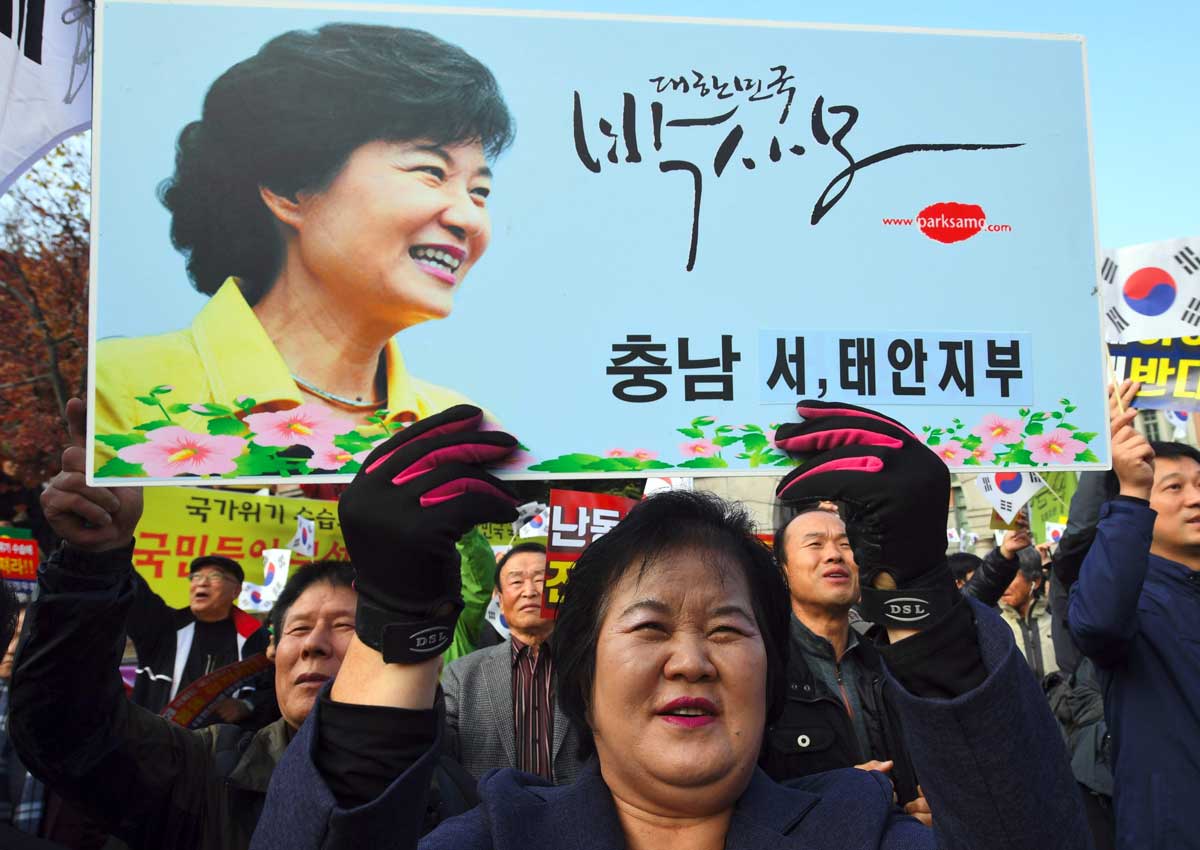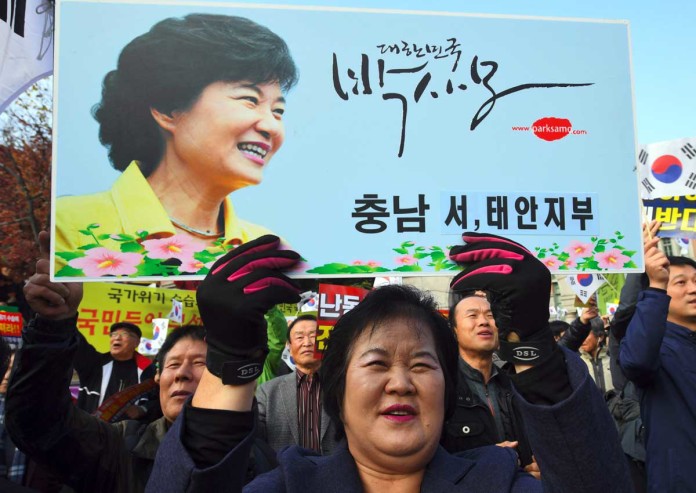The voices calling for her resignation may be growing stronger, with more than one million people expected to stand in the chill today in protest, but South Korean President Park Geun Hye is showing no sign of bowing out.
Some critics say she is too stubborn. Others call her foolish.
Even as public anger turns into resentment amid a parliamentary gridlock, the 64-year-old daughter of late authoritarian leader Park Chung Hee seems determined to ride out her biggest political crisis and remain in office until the end of her term in February 2018.
Ms Park has even resumed her official duties this week, appointing two vice-ministers, pushing ahead with the deployment of a United States anti-missile system and an intelligence-sharing pact with Japan, and making plans to visit Tokyo in the middle of next month for a trilateral summit with Japan and China.
This is despite a looming probe by prosecutors delayed till next week, to investigate her alleged link to an influence-peddling scandal involving her close friend Choi Soon Sil.
Ms Park’s determined display of will may not go down well with the vocal opposition and protesters, but might score with her so-far silent supporters and those getting tired of an unfolding saga with more twists than a TV soap opera.
Analysts say she has lost her legitimacy and credibility, and that no one will take her seriously now that allegations have emerged that she allowed her civilian friend, Ms Choi, to meddle in state affairs and exert her influence in national policies.
But with no immediate solution in sight – even opposition parties are divided over whether it’s better to purge the President or have her delegate her powers to a neutral prime minister – Ms Park must still go on.
Political commentator Don Lee told The Straits Times: “People think the President is bad and we should just change leadership. But it’s not so clear-cut. Even the worst leadership is better than chaos.”
For now, Ms Park still has powers guaranteed by the Constitution, he added.
But she will not have an easy time trying to steer ahead, given negative public sentiments and her plunging approval ratings.
The snowballing saga is giving not only the President but also the country a bad name.
“This scandal will deal a huge blow to the image of Korea in the international circles,” said political scientist Myungji Yang from the University of Hawaii at Manoa.
“From the perspective of other countries, there will be no reason to meet and negotiate with Ms Park at this moment, both because her term is near the end, and whatever she says will not be credible any longer.”
The country’s already sluggish economy will also be hard hit, and it does not bode well that major conglomerates like IT giant Samsung and Hyundai Motor are also implicated in the scandal.
Some of their bosses have been summoned for questioning by prosecutors over allegations that they donated huge sums of money to two foundations set up by Ms Choi for her own gain.
Political uncertainties will result in a loss of consumer and business confidence, said Dr Hyunju Kang, research fellow at local think-tank Korea Capital Market Institute.
“The President and the government have completely lost the momentum to enforce economic reforms,” he said.
Not all is lost for Ms Park though. With a new team of key aides in place, she has about 15 months to turn the situation around.
But first, she must prove she can withstand next week’s probe, which hinges on the outcome of investigations into Ms Choi, due out tomorrow.
changmc@sph.com.sg

This article was first published on Nov 19, 2016.
Get a copy of The Straits Times or go to straitstimes.com for more stories.


 Photo Gallery
Photo Gallery



